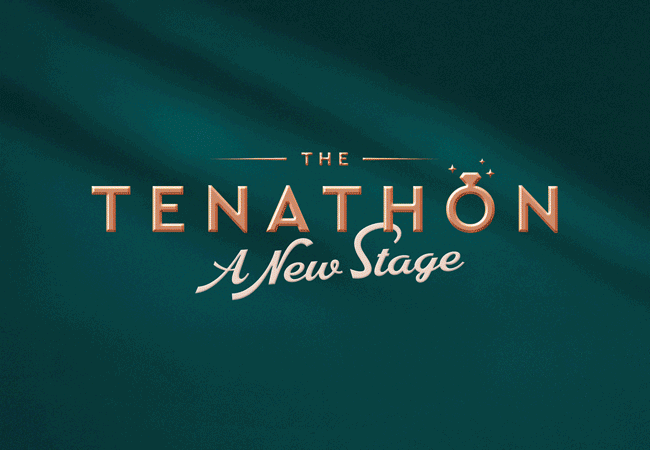Westmount, Canada — She’s a Jewish U.S. naval reserve officer, she keeps kosher and Shabbat, and she has completed two tours of duty in Iraq.
Naval Officer: Pesach in the Military
Westmount, Canada — She’s a Jewish U.S. naval reserve officer, she keeps kosher and Shabbat, and she has completed two tours of duty in Iraq.
Lt. Laurie Zimmet of Los Angeles is not your typical former Jewish day school teacher. She can truthfully tell that in the midst of a war she organized a Passover seder in Saddam Hussein’s former hunting lodge, and a Chanukah party in an old palace, complete with a huge menorah.
Zimmet, 42, returned in September after one year in Iraq, serving in a non-combat, but armed role with the navy’s ground forces at the war’s “brain centre.”
During the final seven weeks she worked at the U.S. embassy in Baghdad, when Israel was fighting Hezbollah in Lebanon. Part of her job was preparing daily news summaries for Gen. George Casey, the senior coalition commander in Iraq.
She also served at the outset of the war in 2003 for seven months.
A natural storyteller, Zimmet talked about some of her more colourful experiences recently at the Westmount Chabad Educational Centre in a straight-shooting, often humourous, manner. Tall and blonde, Zimmet came in her civvies: a suit with a pale-blue jacket and print skirt, and referred to herself by her Hebrew name Leah Bracha.
She declined to be described as frum or observant. “I don’t observe Judaism; I do Judaism. I don’t always do it well, but I try really hard…I hope if you hear of me again, you’ll say, yeah, she’s a good Jew.”
Zimmet took it upon herself to organize the seder last year, which drew Jewish personnel from all over Iraq. The brusque Special Forces general she reported to – who happened to be Jewish – initially balked at getting involved. “I can’t wear my Judaism on my sleeve like you do,” he told her. Eventually, he relented and went. He even said a few words.
Zimmet’s biggest shock upon arrival for her most recent tour was being shown to her workstation and noticing at the place beside hers a siddur, Chumash and other Jewish texts.
Stunned, she could barely take in what the colonel was telling her. A big bluff character, her commander explained matter-of-factly that the desk was “Chime’s” and he was an Orthodox Jew from Monsey, N.Y. It was Chaim who showed Zimmet it was possible to keep kosher in Iraq. He kept a special place where she was astounded to see shelves and shelves of Manischewitz, Rokeach another kosher food, as well as a full array of cookware.
Zimmet got her rabbi and family to keep her similarly supplied.
Keeping Shabbat was perilous. She worked at FOB Victory, near Baghdad, but slept at FOB Slayer about three miles away. The two bases are connected by a tunnel. She walked through that tunnel on Shabbat.
The danger was not the IEDs and sniper attacks above-ground, she said, but the narrowness of the tunnel. If she wasn’t careful, she could be clipped by the protruding mirror of a passing Humvee.
The U.S. military does its best to meet the religious needs of all soldiers, she said, but with only 20 rabbis volunteering as chaplains throughout the service, Zimmet and her fellow Jewish soldiers could not rely on a rabbi to always be there to organize services and holidays.
Zimmet pointed out that Jews are over-represented in the U.S. military proportional to their population, and Jews from all walks of life – from doctors to cooks to public affairs officers — are serving throughout Iraq.
Zimmet, who is single, grew up in Simi Valley, Calif., the daughter of a Korean War veteran she calls a hero. She was the youngest in a military family of three brothers and two male cousins who lived with them. From childhood, there was no doubt in her mind that she would also enter the military.
The family was not observant, but she went to synagogue sometimes with her grandmother, and describes her late mother as having had a strong faith in God. Zimmet became interested in Judaism as a pre-teen and active with the Chabad-Lubavitch movement during college.
Her new religious awareness did not deter her from wanting to enter the military. She sees absolutely no contradiction in her deep patriotism as an American, her love of Israel and her devotion to Judaism, although she thought it would be next to impossible to keep it in Iraq.
She had planned to join the reserves as an officer when she completed college, but due to changes in the rules, her education degree was no longer recognized. Her father was adamant that she not enlist.
Only years later, after working for nine years as assistant to talk-show host Dennis Prager, she enlisted. That was 12 days before Sept. 11, 2001. Much to her father’s joy, she received her commission during her first tour in Iraq.
Zimmet was keenly aware at Rosh Hashanah that she was “praying in the land of our ancestors.” According to the Bible, the Garden of Eden was between the Tigris and the Euphrates rivers, and Babylon figures prominently in Jewish history, she said.
Joined by Jews who had come in from all over Iraq, thanks to non-Jews filling their posts, she called it a “beautiful, beautiful experience” even as mortar attacks fell.
She believes Jews have a special responsibility to see that the land of Iraq is not devastated because it is so intertwined with Jewish history.
At Chanukah, Zimmet hit on the idea of erecting a giant menorah in one of Saddam’s old palaces, with the enthusiastic endorsement of the head chaplain, a Catholic priest. Because the first night of the holiday coincided with Christmas that year, she decided to make it ecumenical and sent out a fliers to the 140,000 troops inviting them to the party.
Using images taken from the Internet, the U.S. Army Corps of Engineers designed the menorah. KBR, a subsidiary of the private contractor Haliburton, built it, refusing to accept any payment, she said. It was 12 feet tall by 10 feet wide and they improved on the engineers’ blueprint by adding a light switch at the base of each candleholder.
“The rule in the military is that Jews work Christmas Day. But not that year, for every Jew who came – and more came than at Rosh Hashanah – a non-Jew took his or her place, which is not easy in wartime. Members of all the coalition forces came in – British, Poles, Japanese among them.”
The Special Forces’ aptly named Hardcore Chorale “gave up their sumptuous Christmas meal and sang ‘I had a little dreidel’.
“I was dumbfounded. Here we were lighting the light of freedom in the home of a man, who called himself a modern-day Nebuchadnezzar, a man who chose to extinguish light all his life,” Zimmet said.
Zimmet will speak again in Montreal May 14 at a FEDERATION CJA women’s event.
















manny
pss…
You got the Consul General over here.
Not bad